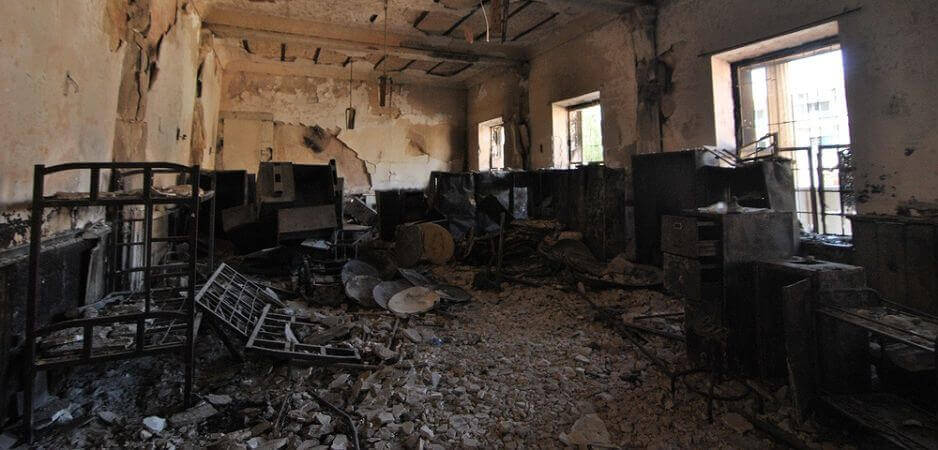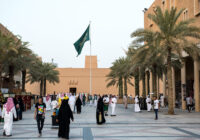Saudi Arabia is getting closer to Iraq in a bid to curtail the influence of Iran.
With the Islamic State (IS) on the ropes in Iraq, Saudi Arabia is forging ties to Iraqi Shia leaders and offering to help fund reconstruction of Mosul and other predominantly Sunni Muslim cities, which were devastated in the military campaign against the jihadist group. The Saudi outreach to Iraqi Prime Minister Haider al-Abadi and a controversial Shia scholar, politician and militia leader, Moqtada al-Sadr — who on July 30 held rare talks in Jeddah with Crown Prince Mohammed bin Salman — aims to contain significant Iranian influence in Iraq. Sadr is widely seen as having balanced his strong sense of nationalism and his relations with Iran. It was his first trip to the Kingdom of Saudi Arabia in more than a decade.
Sadr’s visit was a far cry from the days not so long ago when, as a firebrand, he railed against Riyadh, prompting an Iraqi poet to declare that “with Moqtada’s help we will destroy Saudi Arabia.” Sadr, who has criticized Iranian-sponsored Shia militias fighting IS alongside the Iraqi army as well as Iran’s backing of Syrian President Bashar al-Assad, was preceded by Prime Minister Abadi who was received in the kingdom in June, despite having voiced his opposition to the Saudi-Emirati-led boycott of Qatar.
Rivalry with Iran is one of the core issues in the Gulf crisis. The Saudi-Emirati alliance has demanded that Qatar curtail its relations with Tehran, with which it shares the world’s largest gas field.
The Saudi outreach also signals a rare recognition that Iranian influence is a fact in a vicious proxy war that, so far, has been largely fought by the kingdom as a zero-sum game. The proxy war prompted Saudi Arabia’s ill-fated military intervention in Yemen, aggravated Syria’s brutal civil war, and sparked sectarian tensions across the Muslim world.
Ibrahim al-Marie, a retired Saudi colonel and Riyadh-based security analyst, voiced Saudi Arabia’s expectations of its outreach when he noted that “the significant improvement in Saudi-Iraqi relations, official and non-official, doesn’t mean that Iran’s domination of Iraq has decreased or will decrease. Dealing with all political currents in the Arab world is expected from a country of the kingdom’s size and stature.”
ENGAGEMENT OVER CONFRONTATION
The outreach by Riyadh, despite Saudi Arabia’s designation of the Iranian-backed Lebanese militia Hezbollah as a terrorist organization, constitutes the second time in six months that the kingdom has opted for engagement rather than confrontation. In February, Saudi Arabia reversed its stance toward Lebanon following the cancellation of $3 billion in military aid to the country, where Hezbollah is one of the foremost political forces and part of the government. Riyadh has appointed a new ambassador; rescinded its advice to Saudis not to visit Lebanon, a popular Saudi tourism destination; increased flights to Beirut by its national carrier; and welcomed Lebanese President Michel Aoun, a Christian ally of Hezbollah, on a visit to the kingdom.
Prince Mohammed reached out to Sadr as the kingdom’s security forces were cracking down on activists in the predominantly Shia, oil-rich Eastern Province.
The Saudi interior ministry reported earlier this week that a police officer was killed and six others injured when their patrol was attacked in the town of al-Awamiyah. This town was home to Sheikh Nimr al-Nimr, a Shia scholar whose execution in January 2016 sparked a rupture in Saudi-Iranian diplomatic relations.
Canada has sold $15 billion-worth of armored vehicles to Saudi Arabia, and there have calls for an investigation into claims they were used in crackdowns on Shias. This follows the release of videos by Saudi human rights activists that purported to show the use of Canadian vehicles in past crackdowns in the Eastern Province rather than the current operation in al-Awamiyah.
Saudi engagement with Iraqi leaders comes in advance of Iraqi provincial and parliamentary elections scheduled for 2018. Sadr’s visit to Jeddah took on added significance because of his opposition to Abadi’s rival, former Iraqi Prime Minister Nouri al-Maliki, who is widely seen as a major Iranian asset. The visit raised questions of what role Sadr may want to play in countering Iranian influence in cooperation with Saudi Arabia.
Sadr and Abadi hope that Saudi Arabia will not only help in funding reconstruction of predominantly Sunni Muslim cities that have been left in ruins by the military campaign against IS, but also in building bridges to a community that feels it has been marginalized since the 2003 overthrow of Saddam Hussein’s minority Sunni regime. They believe Saudi Arabia will be able to leverage not only its financial muscle, but also the fact that many Iraqi Sunni tribes share a common lineage with Saudi clans.
Mosul, Iraq’s second largest city prior to its takeover by IS in 2014, has been virtually destroyed. Its infrastructure will have to be rebuilt from scratch at an estimated cost of tens of billions of dollars. Rebuilding other cities ravaged by the anti-IS campaign has been slow to get off the ground.
Some optimists suggest there may be more to Saudi moves. They hold out the possibility that Prince Mohammed is looking for a back channel to Iran — a role that Sadr could fulfil as one of the few Iraqi Shia politicians who has reasonable relations with both Tehran and Riyadh. More likely, however, Prince Mohammed sees an opportunity to exploit differences within the Iraqi Shia community toward Iran and the government’s need of help in forging bridges to its Sunni citizens.
“One thing is for sure. The Saudis did not invite a major Iraqi Shiite cleric to [Jeddah] just to inquire after his health,” quipped Middle East scholar Juan Cole.
The views expressed in this article are the author’s own and do not necessarily reflect Fair Observer’s editorial policy.
Photo Credit: Lena Ha / Shutterstock.com
Support Fair Observer
We rely on your support for our independence, diversity and quality.
For more than 10 years, Fair Observer has been free, fair and independent. No billionaire owns us, no advertisers control us. We are a reader-supported nonprofit. Unlike many other publications, we keep our content free for readers regardless of where they live or whether they can afford to pay. We have no paywalls and no ads.
In the post-truth era of fake news, echo chambers and filter bubbles, we publish a plurality of perspectives from around the world. Anyone can publish with us, but everyone goes through a rigorous editorial process. So, you get fact-checked, well-reasoned content instead of noise.
We publish 2,500+ voices from 90+ countries. We also conduct education and training programs
on subjects ranging from digital media and journalism to writing and critical thinking. This
doesn’t come cheap. Servers, editors, trainers and web developers cost
money.
Please consider supporting us on a regular basis as a recurring donor or a
sustaining member.
Will you support FO’s journalism?
We rely on your support for our independence, diversity and quality.






